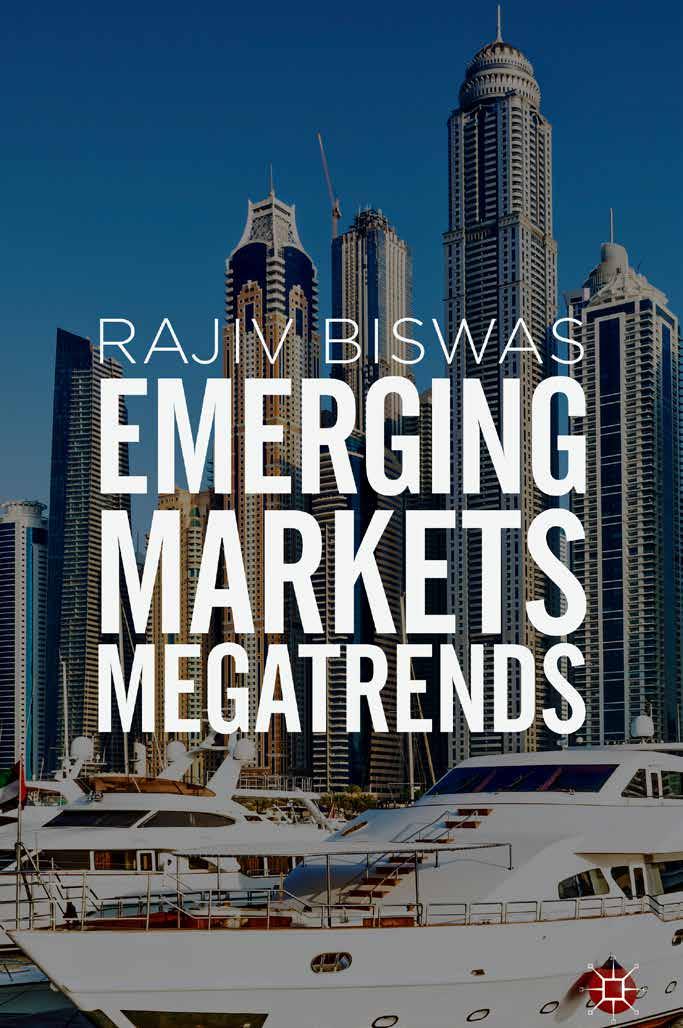
5 minute read
New President, new roadmap
Patrice Luscan
Patrice Luscan currently serves as Marketing & Innovation Director at Coface. Patrice graduated from Reims Management School (now Neoma) and started his career in 1997 with Gerling Namur (now Atradius). After 4 years he joined an 8M€ telecom service provider as Company Secretary. He was back in credit insurance in 2003, joining Euler Hermes to launch their second generation of international offers. During the 9 years at EH he then served as Head of products & services and Marketing director of EH France, before switching to the new EH World Agency where he was managing the French desk. Patrice joined Coface in 2012 as Deputee group organization director and Group marketing director a year later. His present role covers value propositions, client experience and innovation.
Advertisement
Patrice published a book (in French) about the current practice of credit management and possible innovations. (‘Crédit interentreprises : le credit management doitil se réformer?’ – Editions EMS) make sense for all members.” open to collaboration with nontraditional players to be able to adapt to what is a rapidly changing environment: “Beyond helping members prepare for the future – in those areas where the association can usefully contribute – I think another question will have to be raised at some point about the relevant ecosystem for ICISA in the future. There might be new key players we should connect with in the digital
a decisive impact on TCI in Europe. For surety, where the law is a key driver of demand, the potential impact is even greater. I believe that affecting the changes we want as an industry will take time and members will have to sustain their efforts to achieve the desired results.”
On a different level, Patrice intends to use his presidency to put the industry’s key transformation challenges on the agenda. “Digitalization of trade, and the spread of artificial intelligence in risk services, will pose many challenges for our industry over the next couple of years. The starting point is to reach a common understanding of what has to stay in the hands of each members and what might be better undertaken within the context of the association.” Patrice notes. While he acknowledges that this is not an easy discussion, he does recognize simple guiding principles can be inferred by asking two key questions: “Can members achieve the initiative on their own or does it require industrywide scale?” “Does the initiative have differentiation potential for the members Patrice continues: “So I think I can safely say that joining our efforts to use more data science in risk underwriting is unlikely to happen. On the other hand, I guess that investing together in certain standards or infrastructure blocks, using blockchain perhaps, is more likely to
Patrice is keen to highlight the increasing importance of remaining individually?”
space… Perhaps, marketplaces will one day setup their own industry associations! Or these players will take other forms, such as the selfadministered groups of nodes in some blockchains, or it may be about trying to build relationships with individual and dominant global players.”

Article by Rajiv Biswas, Asia-Pacific Chief Economist, IHS Markit
Will Turkey’s Crisis Trigger Contagion to Asian Emerging Markets?
Overview
With Asian emerging markets accounting for over 75% of the MSCI Emerging Markets index, concerns about emerging markets contagion have risen since the Turkish economic crisis escalated. A number of large emerging markets including Argentina, Venezuela and Turkey, are currently engulfed by severe economic crises. Russia and Brazil, two of the BRICS nations, have only recently staged a gradual recovery from protracted recessions. The escalating USChina trade war, US trade frictions with the EU and other NAFTA partners, as well as US implementation of economic sanctions on Russia and Iran have also compounded anxieties amongst Asian governments and multinationals about the downside risks to global growth from a world trade slowdown.
East Asia continues to be haunted by the ghosts of crises past, with the contagion triggered by Thailand’s economic crisis in 1997 having resulted in the protracted Asian financial crisis in 199798. One after another, many East Asian tiger economies were toppled by financial markets contagion and capital flight, plunging their economies into protracted recession, banking crises, corporate failures and bursting of stock market and property market bubbles.
Turkey’s current economic crisis is very reminiscent of the economic crises experienced by East Asian economies such as Thailand, Indonesia and South Korea during the Asian financial crisis. Although the trigger for the intensifying Turkish crisis has been the announcement of US sanctions and tariff measures on Turkey, the underlying causes of the economic crisis are much more deeprooted macroeconomic imbalances, including a large current account deficit, excessive reliance on foreign portfolio capital inflows and high levels of external debt. Turkey’s gross external debt is estimated to have reached USD 467 billion by March 2018, or 52.9% of GDP, according to Turkey’s Ministry of Treasury and Finance.
With the Turkish lira depreciating rapidly, having fallen by around 40% versus the USD since the beginning of January until midOctober, the sharp depreciation is intensifying external debt problems while continued portfolio capital outflows put further downwards pressure on the Turkish lira. According to IHS Markit CDS spreads data, Turkey’s 5year sovereign CDS spreads widened significantly in the first two weeks of August, reaching 580bps on 13 August, the first time they have approached the 600bps level since the Global Financial Crisis, before easing to 523bps by 10th September and compressing further to 421bps by 8th October.
Turkish corporate sector has more than USD 200 billion of external debt, with many companies having a funding mismatch of borrowings in USD while their earnings are in Turkish lira, which creates an intensifying risk of rising corporate bankruptcies if firms cannot roll over their debts.
Concerns have already mounted about contagion from Turkey’s economic crisis to the European banking sector, with Spanish banks have the biggest collective exposure, at around Euro 81 billion, while French banks have an estimated Euro 35 billion of exposure to Turkey, according to BIS statistics. Some European countries also have significant trade exposure to Turkey, notably Greece and Russia.






